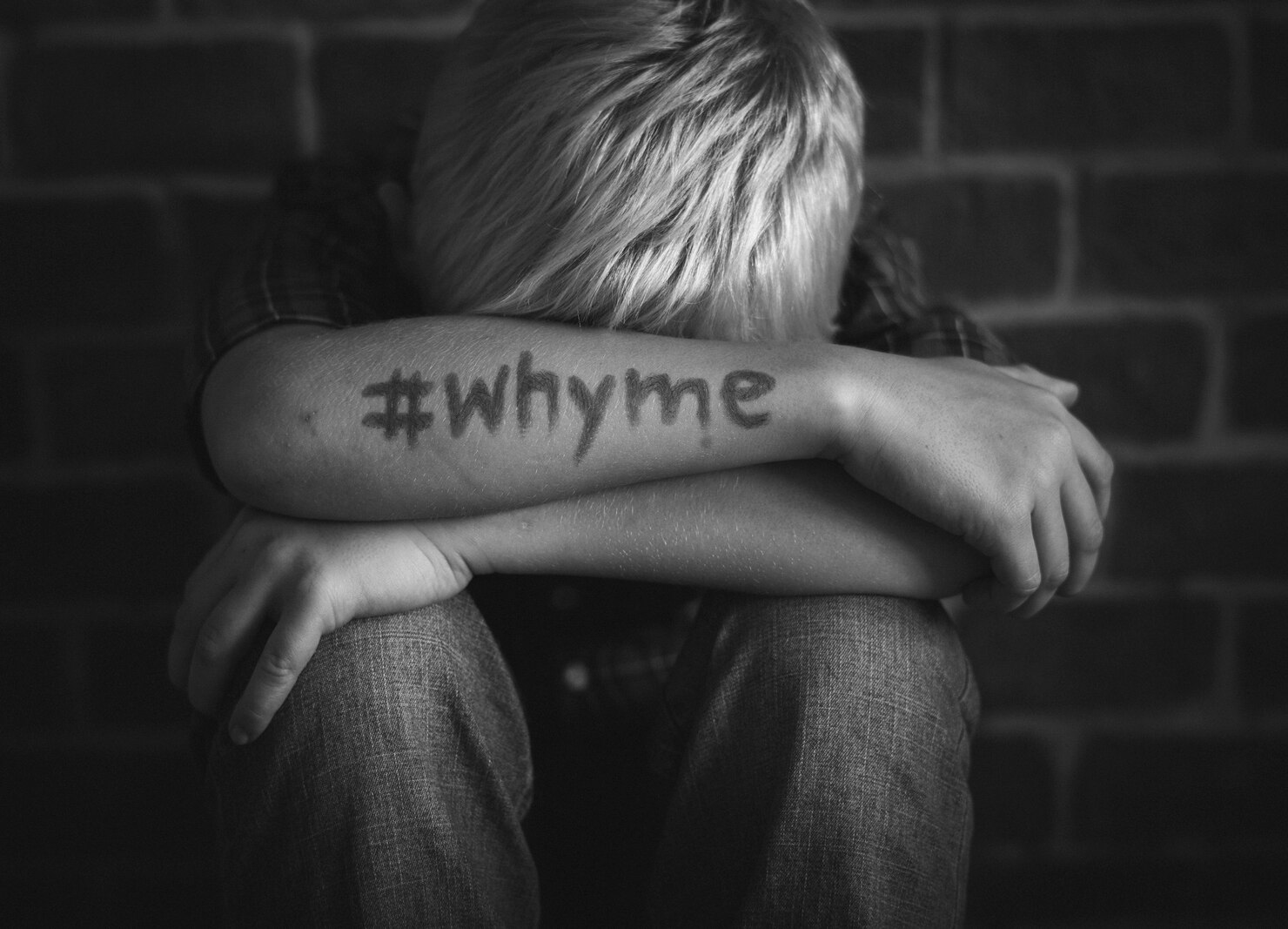Reclaiming Your Life: Trauma Recovery Therapy
“You may not control all the events that happen to you, but you can decide not to be reduced by them.” Maya Angelou
Post-Traumatic Stress Disorder PTSD
“You are not a mess. You are a feeling person in a messy world.” Glennon Doyle
Our human spirit possesses remarkable capabilities, enabling us to navigate life. Among these capabilities is the human brain, with one of its most crucial functions being to ensure our safety. To accomplish this, our brains process our experiences, transforming them into memories that serve as guidance, leading us towards positive encounters and steering us away from negative ones. However, when we undergo a traumatic event, the memories associated with it can significantly impact our responses and our ability to handle highly stressful situations. As a result, we may feel a sense of detachment from our usual selves or sense danger when there isn’t any.
Here are a few indicators that Post Traumatic Stress is interrupting your serenity and sense of security:
- Severe emotional distress or physical reactions to something that reminds you of the trauma
- Avoidance of people, places, or activities you once found enjoyable but are now reminders of the trauma
- Feeling detached from family and friends
- Trouble sleeping
- Difficulty concentrating
- Emotional numbness
There are five Gold Standard evidence based PTSD treatment approaches which have show efficacy for reducing PTSD symptoms.
- PE – Prolonged Exposure
- EMDR – Eye Movement Desensitization and Reprocessing
- CPT – Cognitive Processing Therapy
- CPT A – Cognitive Processing Therapy for Sexual Abuse
- WET – Written Exposure Therapy
TF-CBT stands for Trauma-Focused Cognitive Behavioral Therapy. This is a conjoint parent-child approach designed for children and adolescents who have experienced trauma, and it provides parenting training specific to the care needs of their children. Is there TF-CBT for adults? The real answer is… No. You may read or hear about TI-CBT (Trauma-Informed Cognitive Behavioral Therapy). However, TI-CBT alone is not enough to address trauma experienced by adults or for adults seeking therapy to resolve childhood trauma.
Traumatic events are unexpected. The pain felt in the moment vibrates and jolts us in unexpected ways. You feel that your life has been altered, and none of what you experience then and now are of your choosing. With time and therapeutic support, the symptoms of PTSD can lessen. If you feel caught between PTSD and longing for a sense of normalcy, it’s important to be kind to yourself. Trauma therapy can be a valuable source of support and healing. Let’s explore a journey to recovery.
Types of Trauma
Emotional Trauma
“Courage doesn’t always roar. Sometimes courage is the quiet voice at the end of the day saying, ‘I will try again tomorrow.“ Mary Anne Radmacher.
Emotional trauma happens to everyday people. Experience can take many shapes, depending on its severity and how well someone can cope. It can hit you out of the blue, whether it’s a devastating breakup or facing financial crisis, or witnessing things that no one should ever see. It’s like life serving you a plate of pain, and you didn’t even order it!
For instance:
- Losing a loved one
- Witnessing violence
- Ending a long-term relationship
- Sustaining injuries or disabilities
- Battling severe illness or undergoing medical procedures
- Losing an unborn child
- Choosing adoption for your child
Experiencing emotional trauma often triggers a range of emotions like sadness, fear, anxiety, or anger, lingering for extended periods. Sometimes, its effects of Emotional Trauma surface later, causing ongoing stress and a constant state of fear after the trauma.This ongoing emotional turmoil can disrupt daily life and relationships, leaving you feeling overwhelmed by anxiety, fear, sadness, anger, or shame. It’s not just about what happened; it’s the lingering sense of unease, like carrying a heavy bag around, and it’s not a Louis Vuitton, let me tell you.
Emotional trauma can deeply influence your worldview and sense of safety, leading to feelings of vulnerability and distrust towards others. But here’s the good news, folks: Healing from emotional trauma is possible. Through open conversations with a therapist, along with time, there’s a path to relief. I genuinely care about your well-being, and I’m here to support you on your journey toward healing. Let’s connect and start this important conversation together.
Racial Trauma
“Never be limited by other people’s limited imaginations.” Dr. Mae Jemison
Racial trauma, also known as race-based traumatic stress, is another way of saying trauma brought on by racism, discrimination, or prejudice. Exposure to overt and covert racial discrimination, racism, bias, or racial violence has profound and lasting effects on a person’s mental and emotional well-being.
Key aspects of racial trauma include:
- Discrimination the unjust treatment or targeting of individuals due to their racial or ethnic backgrouns.
- Witnessing Racial Violence, hate crimes, or acts of racism either in person or through media coverage.
- Microaggressions are subtle instances of discrimination or bias that occur in daily life and may encompass covert racial slights, stereotypes, or exclusionary behaviors.
Racial hate is deliberately designed to keep the human spirit down, perpetuate inequality and injustice, and divide the human race. Seeking support from mental health professionals who are culturally competent and who have experienced it.
Racial trauma persists as an ongoing reality, not just a relic of the past. Merely tuning into the nightly news lays bare the enduring struggles endured by Americans of Color. It’s a high price to pay, phenotypically speaking.
Exposure to racism, discrimination, and prejudice exacts a undeniably physical toll on those who experience it. It triggers a relentless surge of stress hormones, leaving individuals in a perpetual state of apprehension. This chronic stress can result in hypertension, elevated blood sugar levels, and even cardiovascular disease. Texans of Color often carry this burden of heightened stress with them wherever they go.
But listen, we don’t have to let the pain of negative experiences define who we are. Talking about the pain helps us rebuild resilience and find our way back to a place of strength. This is where therapy can help.
It’s time to rise above adversity and thrive. You deserve that. You truly do. If you need support, a break from the madness, or a place to cry. We are 1 message away!
Sexual Trauma
“I won’t let pain, turn my heart into something ugly. I will show you that surviving can be beautiful.” Christy Ann Martine
Sexual trauma refers to the emotional and psychological experiences undergone by individuals as a result of sexual violence, abuse, or harassment. It’s crucial to understand that sexual trauma is a deeply sensitive and personal experience, and survivors may have different ways of coping and healing. Sexual assault affects victims differently, and even among survivors of the same gender, there can be significant differences in experiences.
Key aspects of sexual trauma include:
- Sexual Violence
- Childhood Sexual Abuse
- Sexual Harassment
- Sexual Exploitation
To all survivors out there, I want you to know that I see you, I hear you, and most importantly, you are believed.
Sexual trauma can leave deep scars. Therapy is a safe space where you can unload that heavy weight. You can let it all out, whether it’s anger, sadness, confusion, or a whirlwind of emotions that you’ve been carrying.

It’s time to reclaim your voice and rewrite your narrative. Yes, you’ve been through hell. Trauma does not define you. With therapeutic support, you can regain and rebuild your resilience. I want to remind you; You are not what happened to you. You are a survivor—an incredible survivor.
Now, We know seeking help can be scary. It’s like a Texan navigating the streets of New York City without Google Maps. Reaching out for support is a bold and courageous step towards healing. It’s a decision to invest in yourself and your well-being, and that is something worth celebrating. So don’t hesitate. If you need immediate legal and forensic help contact the National Sexual Assault Hotline at 800-656-4673.
You are worthy of every ounce of happiness and love that comes your way. Let us know how we can help.
Spiritual - Religious Trauma
“Believe nothing, no matter where you read it or who has said it, not even if I have said it unless it agrees with your own reason and your own common sense.” Buddha Siddhartha Gautama
Spiritual or religious trauma refers to the psychological and emotional distress experienced by individuals as a result of harmful or traumatic experiences within religious or spiritual contexts. While spirituality and religion can provide support, guidance, and a sense of belonging for many people, traumatic experiences result from a profound betrayal of trust within a spiritual or religious setting. Key aspects of spiritual or religious trauma include:
- Growing up or participating in religious or spiritual groups that enforce inflexible doctrines, stringent beliefs, or rituals that clash with their personal values, identity, or welfare.
- At times, leaders or institutions of the community may perpetrate or facilitate different forms of abuse and exploitation, including emotional, physical, or sexual abuse.
- Excommunication or Shunning by the community or family due to questioning beliefs or leaving a faith can result in a sense of loss, isolation, and emotional distress.
It’s important to acknowledge that not all spiritual or religious experiences lead to trauma, and many individuals find great comfort, purpose, and community within their faith or spiritual practices.
Spiritual-religious trauma is absolutely a real thing. A person does not have to join a cult to experience spiritual-religious trauma. It can happen in any religious or spiritual setting, organized or not, where practices or ideologies make you feel that you are no one outside of the believers.
Remember, spiritual-religious trauma is not about God’s love or your devotion to your higher power. The trauma is caused by another human using religious context to control everything about you. It is straight-up abuse. Your safety is the top priority.
Steps to consider when leaving an abusive religious community:
- If you feel physically threatened or unsafe, contact local authorities @ 911.
- Reach out to trusted friends, family members, or support groups who can offer a safe haven.
- Educate yourself about manipulation tactics and coercive control.
- Assess your financial situation. Your safety takes precedence over financial concerns.
The effects of Spiritual-Religious Trauma can have a long term impact on one’s life. It’s never too late to find support. Consider seeking therapy to navigate the complex emotions and challenges that may arise. I am here and invite you to reach out for support.
Vicarious Trauma
“You don’t need to be the best, and you don’t need to be infallible. Sometimes just caring can make all the difference.” Leo Buscaglia
Vicarious trauma, also known as compassion fatigue, is a psychological and emotional response that can occur when individuals are exposed to the traumatic experiences of others, often as part of their work or caregiving roles. It primarily affects those who work in helping professions, such as healthcare professionals, law enforcement, mental health professionals, first responders, and journalists.

Key aspects of vicarious trauma include:
- Indirect Exposure: Witnessing or hearing about the traumatic experiences, suffering, or distress of others, rather than directly experiencing the trauma themselves.
- Empathetic Response: It results from a strong sense of empathy and compassion, where individuals deeply connect with the pain and suffering of those they are helping or supporting.
Now, Vicarious trauma ain’t no blue bonnet field picnic. It can mess with your head and your heart. The emotional and psychological stress hits you from hearing or witnessing the traumatic experiences of others. You’ll know when you are experiencing emotional overload when you start feeling sad, anxious, scared, and even pissed off for no real reason. You’re a human being, which means the physical side effects like headaches, exhaustion, appetite, and sleep disturbance are equal opportunity indicators that your health is impacted. It can make you question everything you believe in and leave you feeling lost and purposeless.
Now, if you’re in a line of work where you’re constantly exposed to other people’s trauma, you gotta take care of yourself, my friend. You can’t pour from an empty cup. We are really here for you. Just like you have been here for us!
Together we will process anything or everything on your mind. You know that saying “Let it go?” I am here to say, you cannot let go of what you don’t have a handle on. Listen up, you’re doing important work out there. So take care of yourself, ’cause this world needs you and your strength. When you need someone in your corner, give us a call. We will always be here for you.

Historical Trauma
“People start to heal the moment they feel heard.” Cheryl Richardson
Historical trauma, also known as intergenerational trauma, refers to the cumulative and enduring emotional and psychological distress experienced by a group or community as a result of historical injustices, systemic oppression, or traumatic events. This trauma is passed down through generations and can continue to affect individuals and communities in the present. If you aren’t sure this is a real thing… ask any member of the Original Peoples of the America’s, African Americans carrying the legacy of slavery, Holocaust survivors, or Japanese Americans survivor of internment camps and their descendants.
Key aspects of historical trauma are:
- Historical Dimension stems from past traumatic events including colonization, genocide, forced displacement, slavery, warfare, or cultural repression.
- Systemic Oppression exacerbated by current and persistent inequalities within legislative bodies, educational institutions, workplace environments, healthcare systems, criminal justice systems, and housing and urban planning.
- Transgenerational Transmission refers to the transfer of cultural customs, narratives, parenting methods, and family dynamics across generations due to historical experiences.
- Collective Identity and memory of a people, including their triumphs and tragedies. In today’s world, this is often seen when external influences manipulate historical narratives and downplay the importance of cultural peoples’ connections to broader societal events and developments.
Acknowledging historical trauma is important in understanding the challenges faced by affected communities because it is an opportunity for healing and reconciliation.

Historical trauma is often referred to as the Soul Wound passed down from generation to generation. The beautiful thing about acknowledging a problem is finding solutions, be it social justice, incorporating multicultural counseling approaches, and understanding social determinants of health. By acknowledging our attachment to our history and the experience of historical trauma, we collectively can write an inclusive narrative for our future.
Historical trauma, often called the Soul Wound, passes through generations. Acknowledging a problem leads to solutions like social justice and multicultural counseling. By recognizing our history and trauma, we shape an inclusive future.
Let’s just own this. The historical traumas inflicted upon ancestors still echo within us, like the rumbling of thunder in our souls, impacting our attachments, behaviors, and parenting styles. We live in a world that may not understand your history or your struggles. Reclaiming our cultural identity breaks down shame and heals. It’s about untangling the knots of historical trauma. We become agents of change and advocates of a living history.
Therapy is a process of sharing your place in that story and history where your emotions are honored and your truths are witnessed. We release the weight of our ancestors’ suffering and allow ourselves to be seen, heard, validated, and understood. Are you ready?
LGBTGEQIAP+ Traumatic Experiences
“Equality means more than passing laws. The struggles is really won in the hearts and minds of the community, where it really counts.” Barbara Gittings
Trauma pertains to the psychological effects of situations that threaten an individual’s state of well-being. The LGBTGEQIAP+ communities have really experienced their share, such as:
- Homophobia and Transphobia
- Bullying and Harassment
- Family Rejection
- Violence and Hate Crimes
- Discrimination in Healthcare and Mental Health Settings
- Loss of Supportive Communities and Family
- Sexual Assault
- HIV/AIDS Stigma
- Legal and Policy Discrimination
- Conversion Therapy a coercive methods to alter sexual orientation or gender identity. Conversion and Reparative therapies are not supported by the American Psychological Association.
Experiencing trauma can stir up a mix of emotions like sadness, fear, anxiety, or anger, which might linger for a while.
Sometimes, the effects of trauma may not appear immediately and could persist for months or longer, causing ongoing stress and fear. I want to talk about something that really concerns me deeply: internalized homophobia, transphobia, and polyphobia, which refer to self-hatred of one’s sexual orientation, gender, or relational preference.
Experiencing prejudice is challenging, but believing you deserve that hatred adds another layer of pain and shame. Negative self-talk, self-criticism, depression, and anxiety aren’t ways to live your best life. You deserve love, support, and acceptance exactly as you are.
I have 3 promises to give you: You will be safe. You will be respected. You will be heard. If your experiences are just too overwhelming, reach out. Let’s talk and work on building your resilience, embracing your authenticity, and navigating life’s challenges boldly. Give yourself the chance to build up y our personal resilience, shine like the star you are authentically and unapologetically. Confronting your pain is a powerful step towards healing and growth. Reach out anytime!

It's okay to not be okay. We are here to listen without judgment whenever you're ready.
If you think you or a loved one is experiencing Post Traumatic Stress Disorder (PTSD) or a histroy of unresolved Trauma, reach out to out Infinite Psychology at our Houston Texas based location.
Getting Started is Easy
Free 20 Min Chat
Invest in your happiness. Call today.
Book Appointment
If you’re ready to get started, book your first appointment.
Learn More About

Please refer to the ” Copyright Notice” tab for the comprehensive details of the copyright notice.
Copyright Notice: All content provided herein is protected by copyright law and is the intellectual property of Lynda M. LeClair LPC copyright owner. Unauthorized reproduction, distribution, or any other use of the content without explicit written authorization from the copyright owner is strictly prohibited and may result in legal action. If you wish to use or reproduce any content, you must obtain written permission from the copyright owner. Any unauthorized use of the content may constitute infringement under applicable copyright laws. To inquire about the copyright owner, please contact the administrator of this platform.
